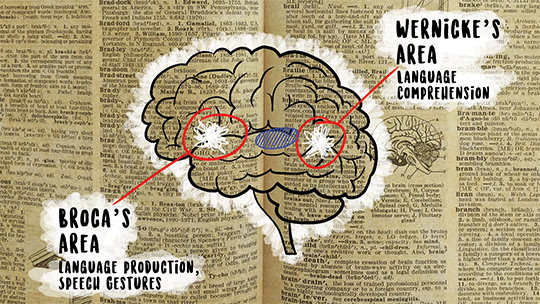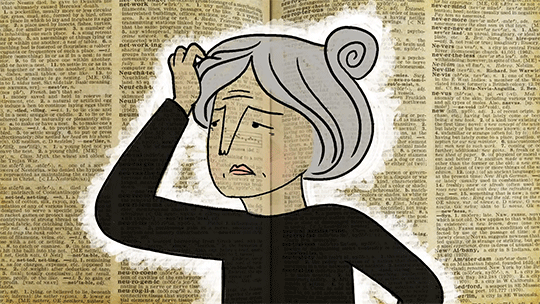Don't wanna be here? Send us removal request.
Text
"We're werewolves not swearwolves" - definitely something Remus has said at some point
peter: werewolf?
james: *points at remus* therewolf
remus: fuck off
sirius: ohh! swearwolf
13K notes
·
View notes
Photo







it’s not halloween for 8 years but it is james potter’s birthday so that’s a good enough excuse to post my sons being the most extra
10K notes
·
View notes
Conversation
James: Padfoot completes me.
Lily: Um, hello?
James: You're nice too, Lily.
Lily: I'm your girlfriend...
James: But he's my soulmate.
4K notes
·
View notes
Text
They Call Me Coffee
James Potter: They call me coffee because I grind so fine
Sirius Black: they call me coffee because I keep you up past 2 am
Remus Lupin: they call me coffee because I’m really bitter
3K notes
·
View notes
Text
Aphasia: The disorder that makes you lose your words

It’s hard to imagine being unable to turn thoughts into words. But, if the delicate web of language networks in your brain became disrupted by stroke, illness or trauma, you could find yourself truly at a loss for words. This disorder, called “aphasia,” can impair all aspects of communication. Approximately 1 million people in the U.S. alone suffer from aphasia, with an estimated 80,000 new cases per year. About one-third of stroke survivors suffer from aphasia, making it more prevalent than Parkinson’s disease or multiple sclerosis, yet less widely known.

There are several types of aphasia, grouped into two categories: fluent (or “receptive”) aphasia and non-fluent (or “expressive”) aphasia.

People with fluent aphasia may have normal vocal inflection, but use words that lack meaning. They have difficulty comprehending the speech of others and are frequently unable to recognize their own speech errors.

People with non-fluent aphasia, on the other hand, may have good comprehension, but will experience long hesitations between words and make grammatical errors. We all have that “tip-of-the-tongue” feeling from time to time when we can’t think of a word. But having aphasia can make it hard to name simple everyday objects. Even reading and writing can be difficult and frustrating.

It’s important to remember that aphasia does not signify a loss in intelligence. People who have aphasia know what they want to say, but can’t always get their words to come out correctly. They may unintentionally use substitutions, called “paraphasias” – switching related words, like saying dog for cat, or words that sound similar, such as house for horse. Sometimes their words may even be unrecognizable.

So, how does this language-loss happen? The human brain has two hemispheres. In most people, the left hemisphere governs language. We know this because in 1861, the physician Paul Broca studied a patient who lost the ability to use all but a single word: “tan.” During a postmortem study of that patient’s brain, Broca discovered a large lesion in the left hemisphere, now known as “Broca’s area.” Scientists today believe that Broca’s area is responsible in part for naming objects and coordinating the muscles involved in speech. Behind Broca’s area is Wernicke’s area, near the auditory cortex. That’s where the brain attaches meaning to speech sounds. Damage to Wernicke’s area impairs the brain’s ability to comprehend language. Aphasia is caused by injury to one or both of these specialized language areas.
Fortunately, there are other areas of the brain which support these language centers and can assist with communication. Even brain areas that control movement are connected to language. Our other hemisphere contributes to language too, enhancing the rhythm and intonation of our speech. These non-language areas sometimes assist people with aphasia when communication is difficult.

However, when aphasia is acquired from a stroke or brain trauma, language improvement may be achieved through speech therapy. Our brain’s ability to repair itself, known as “brain plasticity,” permits areas surrounding a brain lesion to take over some functions during the recovery process. Scientists have been conducting experiments using new forms of technology, which they believe may encourage brain plasticity in people with aphasia.
Meanwhile, many people with aphasia remain isolated, afraid that others won’t understand them or give them extra time to speak. By offering them the time and flexibility to communicate in whatever way they can, you can help open the door to language again, moving beyond the limitations of aphasia.
From the TED-Ed Lesson Aphasia: The disorder that makes you lose your words - Susan Wortman-Jutt
Animation by TED-Ed
3K notes
·
View notes
Photo


every pairing i’ve ever shipped → kirsten clark & cameron goodkin
378 notes
·
View notes
Photo








Maybe you’re right. Maybe most people leave sooner or later. But you and I are not most people. No matter what you think, no matter how long it takes, I will never leave you.
286 notes
·
View notes
Photo








but i don’t even remember ever being home in the first place ever except here. with you, here. here feels like home
3K notes
·
View notes


































